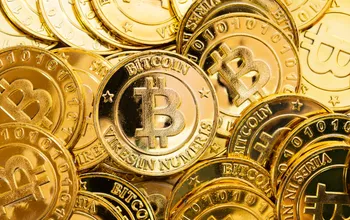World Liberty Financial Blacklists 272 Crypto Wallets
- World Liberty Financial blacklists 272 wallets, including Justin Sun’s.
- Phishing attacks prompt protective measures from WLFI.
- Market impact significant; WLFI token price down 40% post-listing.
World Liberty Financial, backed by the Trump family, blacklisted 272 wallets, including Justin Sun’s, in response to phishing threats, causing significant market disruption.
The blacklist highlights challenges of balancing security and decentralization, with WLFI’s token experiencing a sharp decline, raising concerns among investors about centralized influence in crypto ecosystems.
Nutgraph:
World Liberty Financial (WLFI), backed by the Trump family, blacklisted 272 wallets in response to a surge in phishing attacks. High-profile wallets, including Justin Sun’s, were affected in this protective measure. The event has caught widespread attention.
Market Reaction and Concerns
WLFI emphasized the aim was to protect users and not to penalize. The move has led to concerns on transparency and governance, sparking debates within the crypto community. This step draws a line on existing blockchain principles.
Impacts on Token Pricing
The action has caused significant upheaval in the market. WLFI’s token price has notably dropped by 40% since its listing, reflecting investor concerns. Liquidity withdrawals have also been reported, exacerbating financial impacts considerably.
While the intention remains protective, major financial implications persist. Investors express anxiety regarding potential asset restrictions and centralized control, which contrasts with decentralized financial ideals.
Decentralization vs. Regulation
The blacklisting emphasizes the tension between decentralization and protective regulations. Ongoing investigations aim to restore rightful ownership, yet concerns about WLFI’s governance persist. On-chain analyst ZachXBT applauded the proactive approach but cautioned about reliance on compliance tools.
“WLFI only intervenes to protect users, never to silence normal activity.” – WLFI Official Twitter Statement
Future implications could shape financial and regulatory frameworks, affecting governance tokens extensively. Historical comparisons to stablecoin sanctions highlight unique challenges faced by politically-backed projects, reinforcing debates on blockchain centralization and intervention.
For more insights, you can also explore Justin Sun’s insights on related tech developments.
Disclaimer: The content of this article solely reflects the author's opinion and does not represent the platform in any capacity. This article is not intended to serve as a reference for making investment decisions.
You may also like
Ex-WhatsApp security chief files suit over privacy failures at Meta
Share link:In this post: A former WhatsApp security chief is suing Meta, claiming he was punished after reporting privacy risks. He says 1,500 engineers had open access to user data and that WhatsApp lacked basic security measures. Meta denies the claims and says he was fired for poor performance, not retaliation.

Starting a Business in the Consumer Crypto Sector: What No One Tells You
In small and fragmented markets, focus on retention first before discussing growth.

The pioneer of the stablecoin industry, Do Kwon, is currently seeking to defend his rights in order to recover payment for a house purchase.
Before the UST crash in 2022, Do Kwon had prepaid half of the payment for a 700-square-meter penthouse, but ultimately failed to complete the purchase.

Bitcoin (BTC/USD) Eyes Further Gains as Strategy Expands Holding and ETF Flows Remain Strong
